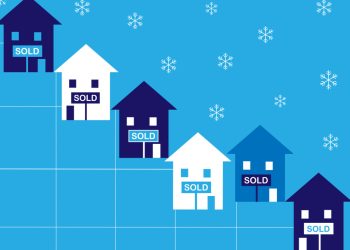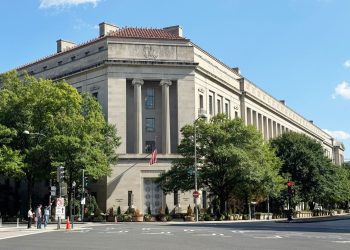The homeownership rate crept up close to a full percentage point from one year ago to 63.7 percent in the second quarter, encouraged by more owner household formation, according to the U.S. Census Bureau’s recent Quarterly Housing Vacancies and Homeownership report. The owner household formation rate overtook the renter household formation rate in the first quarter, and remained ahead in the second quarter—evidence that the shift toward owner-occupied is more than a one-off trend. Roughly 87 percent of housing was occupied in the second quarter, with 55.5 percent owner-occupied and 31.6 percent renter-occupied.
“For only the second time in 11 years, and for the second consecutive quarter, the number of owner-occupied households grew faster than renter households over the year,” wrote Ralph McLaughlin, chief economist at Trulia, in a Trulia Trends blog. “The fact that we now have two consecutive quarters where owner households outpaced renters is a strong sign this trend is reversing and that the homeownership rate bottomed out last year.”
The homeownership rate was only marginally higher in the second quarter compared to the first quarter, when it was 63.6 percent, the report found. The rate in the second quarter was again highest in the Midwest, at 68 percent, and the South, at 65.5 percent, though both regions have seen minimal movement year-over-year. Rates have gone up year-over-year in the Northeast and West, at 60.4 percent and 58.9 percent in the second quarter, respectively.
Households headed by those aged 65 and older comprised the biggest share of homeowners in the second quarter, 78.2 percent, while households headed by those aged 34 years and younger comprised the smallest, 35.3 percent.
Non-Hispanic White Alone homeowners, as defined by the Census, claimed the highest homeownership rate in the second quarter, as well: 72.2 percent. Asian, Native Hawaiian and Pacific Islander Alone homeowners encompassed the second-highest rate, at 56.5 percent, while Hispanic homeowners held the next-highest, at 45.5 percent. Black Alone homeowners totaled the lowest rate, at 42.3 percent.
The homeowner vacancy rate was 1.5 percent in the second quarter, the report revealed; the renter vacancy rate was 7.3 percent. Homeowner vacancy rates were highest outside metropolitan statistical areas (MSAs) at 2.1 percent, ahead of in suburbs at 1.5 percent and in principal cities at 1.4 percent. Renter vacancy rates were also highest outside MSAs at 8.8 percent, followed by inside principal cities at 7.2 percent and in suburbs at 7.1 percent.
The median asking sales price for vacant for sale housing in the second quarter was $177,200, the report showed. The median asking rent for vacant for rent housing, over the same period, was $910.
Source: U.S. Census Bureau
Suzanne De Vita is RISMedia’s online news editor. Email her your real estate news ideas at sdevita@rismedia.com.
For the latest real estate news and trends, bookmark RISMedia.com.











